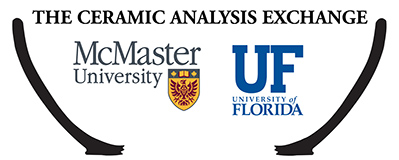Routes to Becoming a Potter in the US Southwest
December 4, 2020, 1:30PM EST
Patricia Crown
Leslie Spier Distinguished Professor of Anthropology University of New Mexico
The Ceramic Analysis Exchange is a collaborative effort between students and faculty from the Laboratory for Interdisciplinary Research on Archaeological Ceramics (LIRAC) at McMaster University, and the Ceramic Technology Lab (CTL). These meetings provide an opportunity for researchers to share ideas and discuss methods and theory related to ceramics in an informal setting. We are pleased to open up our meeting to everyone who’s interested at 1:30pm EST on December 4th, where we will have Patricia Crown as our guest speaker.
Abstract: Archaeologists are increasingly interested in understanding the intergenerational transmission of knowledge in the past. We often assume a smooth transmission of information, without questioning how that teaching and learning occurred. In all societies, childhood is a critical time for learning the skills necessary to function as an adult. Children living in the pre-Hispanic US Southwest had to master a variety of tasks, from farming to cooking and from hunting to crafting. Among other crafts, children learned to form, decorate and fire pottery. This learning process left behind residues that help archaeologists understand how those children learned and how skilled potters scaffolded the learning process. Comparison of thousands of vessels from villages throughout the US Southwest show differences in the learning process and particularly in the amount of time and effort that skilled potters put into working with unskilled learners.
Please register in advance for this meeting: Zoom Registration
